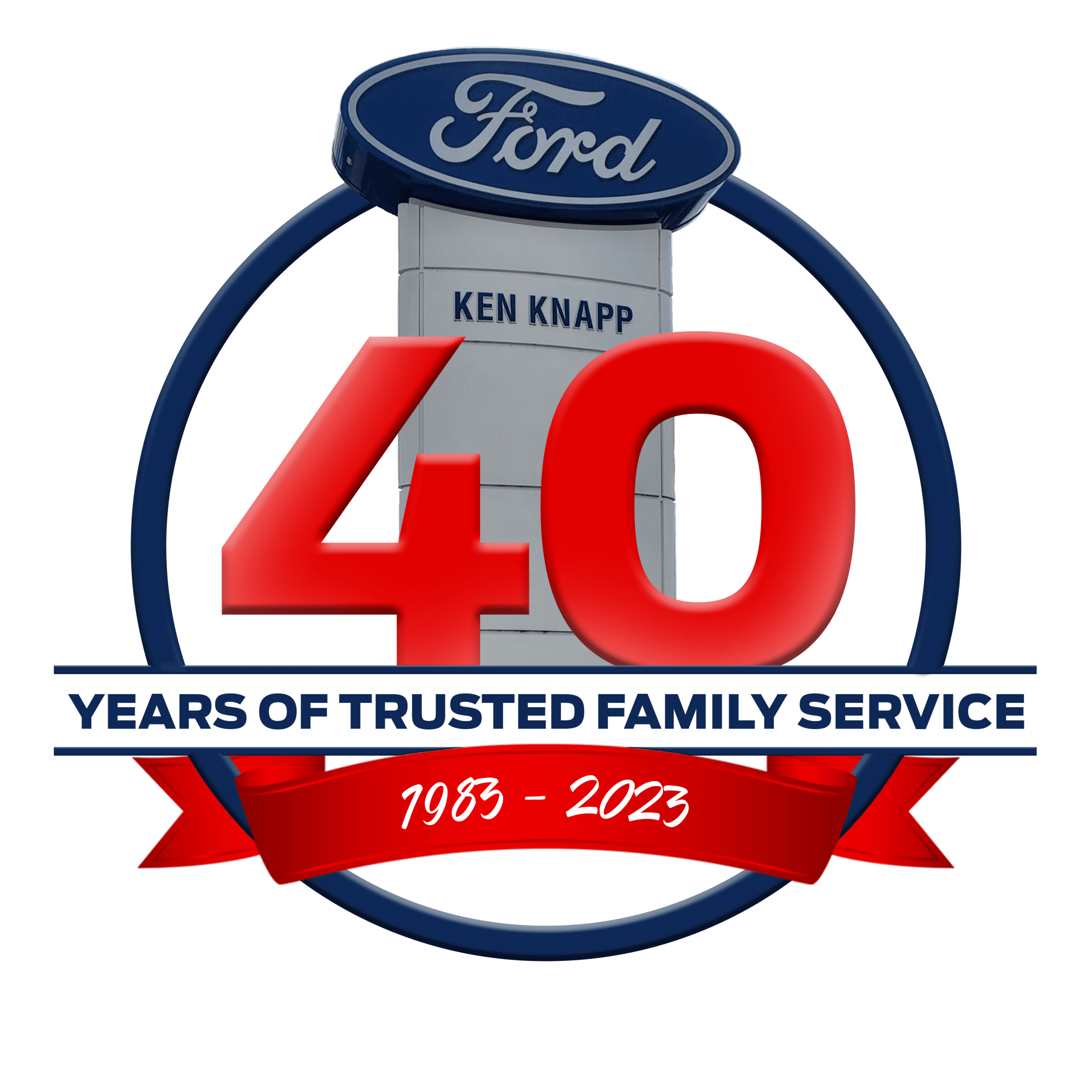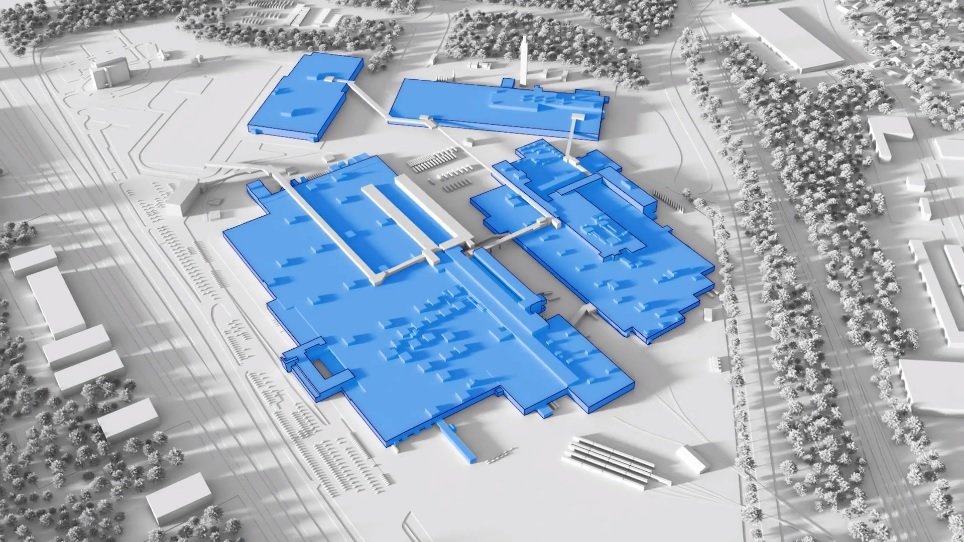Ford is investing C$1.8 billion to transform Oakville Assembly Complex into a high-volume hub of electric vehicle manufacturing in Canada, marking the first time a full-line automaker has announced plans to produce passenger EVs in Canada for the North American market.
Ford Motor Company has announced a C$1.8 billion investment to transform its Oakville Assembly Complex in Ontario, Canada into a high-volume hub of electric vehicle (EV) manufacturing. This move is part of Ford's plan to scale up production of electric vehicles and make them more accessible to millions of customers. The campus will be renamed Oakville Electric Vehicle Complex and will begin retooling and modernizing in the second quarter of 2024, with production of next-generation EVs set to begin in 2025.
This investment by Ford marks the first time a full-line automaker has announced plans to produce passenger EVs in Canada specifically for the North American market. The Oakville Electric Vehicle Complex will be a state-of-the-art facility that leverages Ford of Canada's skilled and experienced workforce, repurposing existing buildings on the 487-acre site.
Jim Farley, Ford President and CEO, stated, "Canada and the Oakville complex will play a vital role in our Ford+ transformation. It will be a modern, super-efficient, vertically integrated site for battery and vehicle assembly. I'm most excited for the world to see the incredible next-generation electric and fully digitally connected vehicles produced in Oakville."
The transformation of the Oakville Assembly Complex is part of Ford's broader strategy to expand EV production by building new greenfield sites and transforming existing manufacturing sites, such as Oakville and Cologne, Germany. Ford aims to achieve a global production run rate of 2 million EVs annually by the end of 2026.
This investment by Ford in the Oakville Electric Vehicle Complex has been met with positive feedback from various stakeholders. Lana Payne, Unifor National President, stated, "Ford's commitment to invest in OAC retooling and upskilling signals a bright future for Canadian EV production and for Canadian auto sector employment." François-Philippe Champagne, Minister of Innovation, Science and Economic Development of Canada, commented, "Ford's transformation from gas to electric vehicles is well underway. Once complete, the Oakville Electric Vehicle Complex will secure thousands of well-paying jobs for our hard-working Canadian autoworkers and boost the competitiveness of Canada's auto sector."
In addition to the Oakville Electric Vehicle Complex upgrades, Ford has also announced other investments in EV manufacturing. Ford is creating an all-new EV manufacturing ecosystem in West Tennessee, called BlueOval City, which will be home to a battery plant and Ford's next-generation EV pickup. Ford is also building a lithium iron phosphate battery plant in Marshall, Michigan through a wholly owned subsidiary, becoming the first automaker to commit to building both lithium iron phosphate and nickel cobalt manganese batteries in the U.S. Ford is also modernizing its vehicle assembly campus in Cologne, Germany to become the Ford Cologne Electrification Center, which will be the production home of the electric Ford Explorer for European customers. Additionally, Ford has signed a non-binding memorandum of understanding with LG Energy Solution and Koç Holding to build one of the largest commercial EV battery cell production facilities in the European region near Ankara, Turkey, with production set to start in 2026. Furthermore, Ford is expanding production of the F-150 Lightning at the Rouge Electric Vehicle Center in Dearborn, Michigan, and the Mustang Mach-E at its Cuautitlan facility in Mexico.
Ford
EV transformation is well underway, and the Oakville Electric Vehicle Complex is a crucial part of Ford's plan to reach a global production run rate of 2 million EVs annually by the end of 2026.
The Oakville Assembly Complex, located in Oakville, Ontario, will be transformed into a high-volume manufacturing hub for electric vehicles, including vehicle and battery pack assembly. This investment of C$1.8 billion by Ford marks the first time a full-line automaker has announced plans to produce passenger EVs in Canada for the North American market. The campus will be renamed Oakville Electric Vehicle Complex, and the retooling and modernization process will begin in the second quarter of 2024, with production of next-generation EVs set to begin in 2025.
The transformation of the Oakville complex will involve repurposing existing buildings into a state-of-the-art facility that leverages Ford of Canada's skilled and experienced workforce. This strategic approach by Ford involves building new greenfield sites as well as transforming existing manufacturing sites, such as Oakville and Cologne, Germany, to expand EV production.
"Ford's commitment to invest in OAC retooling and upskilling signals a bright future for Canadian EV production and for Canadian auto sector employment," said Lana Payne, Unifor National President. "The transformation of the Oakville plant is an important step towards a stronger industry and testament to the hard work, skills, and dedication of our Unifor Oakville Assembly Complex members."
The current 487-acre Oakville site includes three body shops, one paint building, and one assembly building. The transformed campus will feature a new 407,000 square-foot on-site battery plant that will utilize cells and arrays from BlueOval SK Battery Park in Kentucky. Oakville workers will take these components and assemble battery packs that will then be installed in vehicles assembled on-site.
"Ford's transformation from gas to electric vehicles is well underway. Once complete, the Oakville Electric Vehicle Complex will secure thousands of well-paying jobs for our hard-working Canadian autoworkers and boost the competitiveness of Canada's auto sector. The partnership between Ford and Canada helps to position us as a global leader in the EV supply chain for decades to come," said François-Philippe Champagne, Minister of Innovation, Science and Economic Development of Canada.
In addition to the Oakville Electric Vehicle Complex upgrades, Ford has also announced other significant investments in EV manufacturing. These include the creation of an all-new EV manufacturing ecosystem in West Tennessee, called BlueOval City, which will be the home of a battery plant and Ford's next-generation EV pickup. Together with two battery plants in Kentucky, these sites are expected to create 11,000 new U.S. jobs and begin production in 2025.
Ford is also building a lithium iron phosphate battery plant in Marshall, Michigan, through a wholly owned subsidiary, with production slated to begin in 2026 and 2,500 employees. Ford is the first automaker to commit to building both lithium iron phosphate and nickel cobalt manganese batteries in the U.S., diversifying its U.S. supply chain.
Furthermore, Ford is modernizing its vehicle assembly campus in Cologne, Germany, to become the Ford Cologne Electrification Center, the company's first EV center of excellence in Europe. This site will be the production home of the electric Ford Explorer for European customers, with production set to begin later this year. Ford has also signed a non-binding memorandum of understanding with LG Energy Solution and Koç Holding to build one of the largest commercial electric vehicle battery cell production facilities in the European region near Ankara, Turkey, with production scheduled to start in 2026.
These investments by Ford in EV manufacturing across different regions demonstrate the company's commitment to driving the global transition to electric vehicles and
positioning itself as a leader in the EV market. By transforming existing facilities, building new battery plants, and establishing EV centers of excellence, Ford is creating a comprehensive ecosystem for EV production, from battery manufacturing to vehicle assembly.
The Oakville Electric Vehicle Complex in Canada is a significant milestone for Ford, as it marks the first time a full-line automaker has committed to producing passenger EVs in Canada for the North American market. This investment will create new job opportunities and support the growth of the Canadian auto sector, while also contributing to Ford's global production target of 2 million EVs per year by the end of 2026.
In addition to the manufacturing facilities, Ford is also investing in battery technology. By building both lithium iron phosphate and nickel cobalt manganese batteries in the U.S., Ford is diversifying its battery supply chain and securing a stable source of batteries for its growing EV production. The company is also partnering with battery manufacturers like SK Innovation and LG Energy Solution to establish large-scale battery cell production facilities in Turkey and Europe, further strengthening its global supply chain for EVs.
Ford's commitment to EVs goes beyond manufacturing, as the company is also investing in research and development of new technologies, including autonomous driving, connected vehicles, and advanced electrification. Ford is determined to lead in areas such as battery technology, software, and vehicle connectivity, to offer cutting-edge products that meet the evolving needs of consumers and contribute to a sustainable future.
Overall, Ford's transformation into an electric vehicle manufacturer is well underway, with significant investments in manufacturing, battery technology, and research and development. The Oakville Electric Vehicle Complex in Canada is a key part of Ford's global EV production strategy, and the company's commitment to creating a comprehensive ecosystem for EVs demonstrates its determination to be a leader in the rapidly evolving automotive industry.






